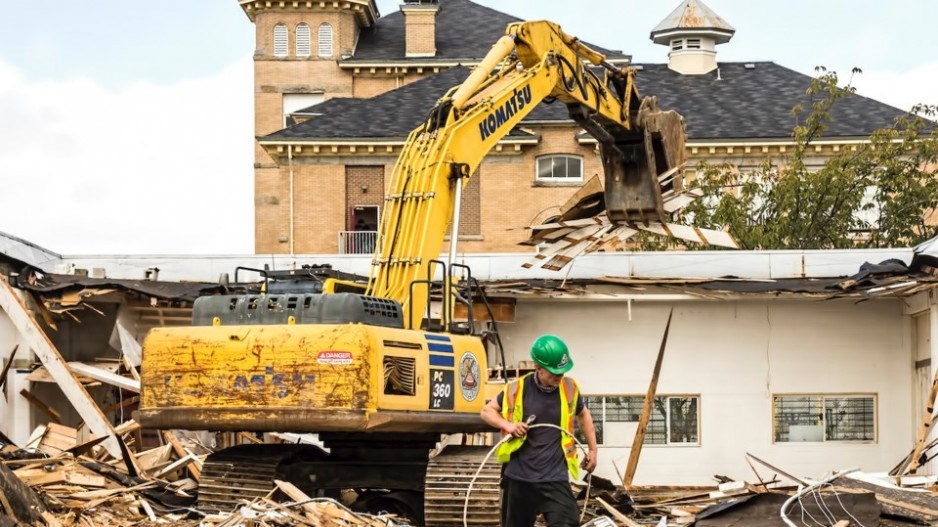Entrepreneur Jordan MacDonald, CEO of Vancouver-based Fabric Living, is an example of who and what is driving B.C. commercial real estate investments towards a record-smashing sales volume this year.
MacDonald specializes in mixed-use projects in East Vancouver. His latest play is Assembly, a mixed-use joint-venture with Hudson Group, that is currently under construction in the east-end neighbourhood of Strathcona.
As demolition at the site roared in late September, MacDonald explained that all 50 condominiums in the project had pre-sold out in three weeks and he expects the ground-level strata retail space to be claimed shortly at more than $1,000 per square foot.
“Main Street is now mainstream,” MacDonald said, referring to the sharp investor interest in East Vancouver’s investment potential.
Across Metro Vancouver, it is such private investors, not foreign buyers or the vaults of real estate investment trusts, pension funds and other institutional groups, that is bankrolling commercial real estate sales that reached $4.6 billion in the first six months of this year.
This is the highest volume recorded since the second half of 2018, according to the BC Investment Review Mid-year 2021, from Avison Young, Vancouver.
Private investors are dominating the market, Avison Young found in its survey which looked only at transactions valued at $5 million or more.
In the first half of this year, private buyers completed 92% of B.C. commercial real estate acquisitions and accounted for 80% of the dollar volume. This was not a surprise: private investors have accounted for nine out 10 B.C commercial property sales for at least the last four years.
Private buyers, Avison Young noted, are characterized by substantial capital to deploy, access to low-cost financing and a greater appetite for risk. Many are not seeking passive income: they have real estate redevelopment in mind.
While a surge in industrial and multi-family sales was not a surprise, the retail performance during a pandemic marked by masks, store closures and social distancing raised some eyebrows. As MacDonald discovered in Strathcona, investors and owner-occupiers have awakened to retail’s potential.
Sales of B.C. retail assets rebounded substantially in the first half with 41 sales valued at $884.6 million, one of the strongest six months ever for retail sales. The total far surpassed the 21 deals valued at $383 million recorded in the second half of 2020 and buried transactions valued at just $223 million in the first half of 2020.
“Investor confidence in B.C. retail assets, while initially bowed by COVID-19, appears to have stabilized. While down from the billion-dollar halves in 2017 and 2018, investor appetite for retail assets in first-half 2021 seemed far from being satisfied”, Avison Young noted.




